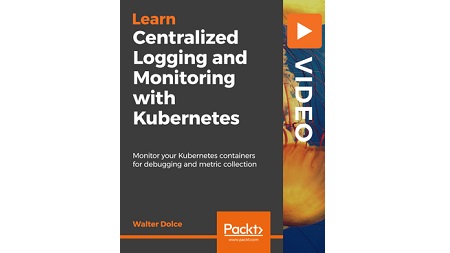
English | MP4 | AVC 1920×1080 | AAC 48KHz 2ch | 0h 49m | 121 MB
Hands-on guide to logging and monitoring containers at scale
Kubernetes is an open source platform designed to automate deployment, scaling, and operation of application containers. Kubernetes automates various aspects of application development, which is extremely beneficial for enterprises. Centralized logging is crucial for any production-grade infrastructure, especially in a containerized architecture. Since Kubernetes is dynamic and does not store change logs except the recent changes, logging and monitoring is highly imperative for saving pod logs.
In this course, you’ll learn to analyze and locate critical pod log files in your Kubernetes clusters. You’ll create a centralized logging system with a configured EFK (Elasticsearch, Fluentd, and Kibana) stack for Kubernetes. Using a hands-on approach, you’ll follow the entire logging and monitoring process, which actually goes hand-in-hand. In your Kubernetes cluster, you’ll find out that your clusters are working with too many containers and it’s difficult to keep track of each of them.
You’ll learn how to build your centralized logging and send data for monitoring. To set up centralized logging, you’ll establish one logging agent per Kubernetes node to collect all logs of all running containers from disk and transmit them to Elasticsearch. You’ll search for log data, monitor the containers, and also collect metrics using Kibana. You’ll decide how your final log data will be presented. By the end of the course, you’ll be able to use centralized logging and monitoring techniques for debugging purposes to find out reasons for crashes, and trigger alerts if there is a spike in error messages (which can be more efficient than a system health check).
This video course starts with a step-by-step guide on how to create an EFK stack and a Kubernetes cluster and how to deploy applications to it. It then reviews in detail how to install logging and monitoring agents on the Kubernetes cluster; how to ship application and cluster logs and metrics to the central monitoring and logging platform; and how to visualize the data stored in the monitoring agents and interpret the logging solution.
Learn
- Discover what Elasticsearch, Fluentd, and Kibana are (aka the EFK stack)
- See how to implement a centralized monitoring and logging platform with these technologies
- Discover what Kubernetes is and how to create a Kubernetes cluster in GCP for modern, containerized applications
- Deploy applications from Kubernetes to the cloud
- Scale the number of applications running in Kubernetes
- Install and configure monitoring and logging agents on the Kubernetes nodes
- Create powerful visualizations for metrics stored Kibana
- Effectively and efficiently analyze logs stored in Kibana
Resolve the captcha to access the links!